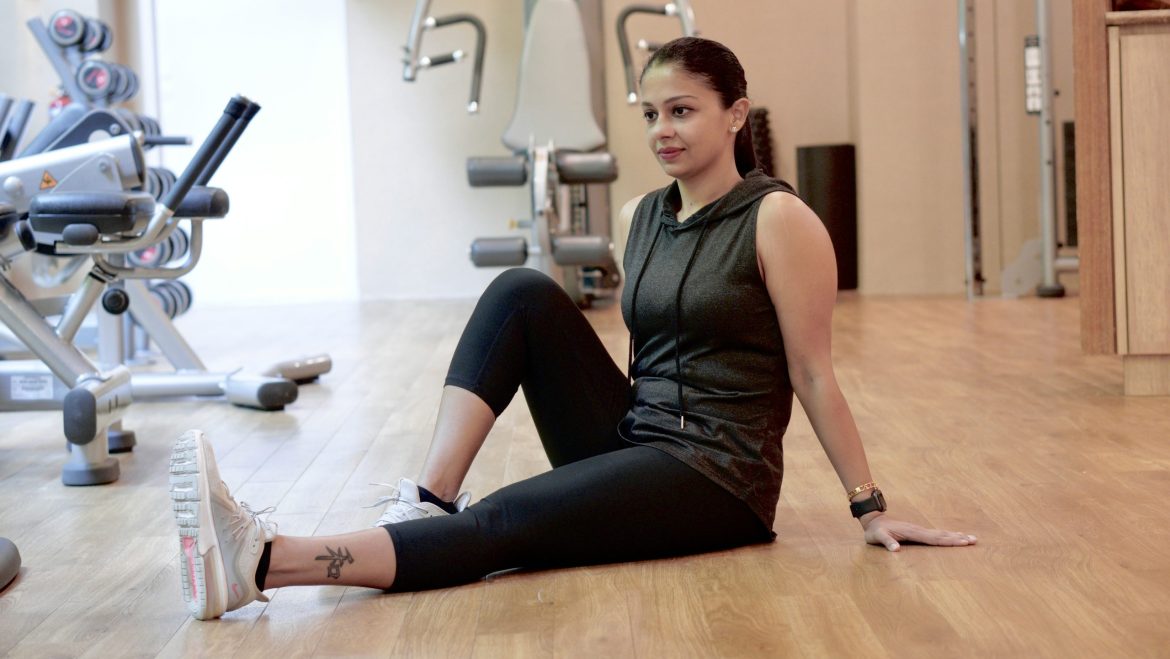Starting a fitness journey marks a significant step towards achieving health and wellness goals, particularly for those new to physical activity. The initial 30 days are critical, as they establish the habits necessary for long-term success. “From 0 to Fitness: Your First 30 Days” offers a comprehensive plan tailored for beginners, providing them with the tools and knowledge needed to navigate the start of their fitness journey effectively.
Did you know? Maintaining consistency is more crucial than high intensity in achieving sustainable fitness results. This guide is crafted to support beginners in establishing a solid foundation in their first 30 days.
The article covers several essential topics, aimed at providing a well-rounded foundation for beginners:
- Starting Your Fitness Journey: Evaluates current fitness levels and how to set achievable goals.
- Creating Your 30-Day Plan: Guides on developing a workout plan that evolves with the user’s progress.
- Nutrition and Fitness: Discusses the importance of diet in supporting physical activity.
- Tracking Progress and Staying Motivated: Offers strategies for monitoring improvements and maintaining motivation.
- Overcoming Challenges: Advises on identifying and addressing common barriers to fitness progress.
Each section of this guide is designed to be actionable and practical, respecting the reader’s starting point and personal fitness goals. The focus is on providing comprehensive support to ensure that beginners can make informed decisions and effective plans from the onset of their fitness journey.
In conclusion, the first 30 days are about building a strong foundation for ongoing health and fitness. This guide aims to demystify the beginning of the fitness journey, making it a manageable and informed process. Readers are encouraged to engage with the content, apply the tips provided, and start their path to fitness with a clear and structured approach.
Starting Your Fitness Journey
Starting a fitness journey is a significant step toward improving health and wellness. For those new to exercise, the initial phase involves understanding current fitness levels, setting achievable goals, and preparing both mentally and physically for the journey ahead. This approach ensures a tailored, effective, and safe start to fitness activities.
Understanding Your Fitness Level
Evaluating your current fitness level accurately is essential for creating an effective and personalized fitness plan. It involves conducting simple tests to gauge your endurance, strength, flexibility, and cardiovascular health, enabling the adaptation of fitness activities to match your abilities and reduce injury risk.
To assess your fitness level, consider the following methods:
- Endurance tests, such as timing how long you can hold a plank.
- Strength evaluations, including the number of push-ups or sit-ups you can perform in a minute.
- Flexibility measurements, like reaching your toes while keeping your legs straight.
- Cardiovascular checks, by noting your heart rate after a brisk walk.
Adapting exercises based on these assessments ensures a safer and more effective fitness routine.
Setting Realistic Fitness Goals
Developing realistic fitness goals is critical for maintaining motivation and tracking progress. Employing the SMART criteria—Specific, Measurable, Achievable, Relevant, Time-bound—helps in formulating clear and attainable objectives. For beginners, setting a goal such as walking for 30 minutes a day, five days a week, for a month, is an example of a SMART goal that is achievable and measurable, providing a clear direction for your fitness journey.
Interesting Fact: Research indicates that individuals who accurately assess their fitness levels are more likely to meet their fitness goals compared to those who overestimate or underestimate their capabilities.
Preparing Mentally and Physically
Preparing both mentally and physically is crucial for a successful start to your fitness journey. Mental preparation involves setting a positive mindset, visualizing success, and being ready to embrace challenges. Physical preparation includes organizing the necessary equipment, choosing suitable workout clothing, and creating a conducive workout space in your home. Additionally, finding the optimal time of day for your workouts can significantly enhance your exercise routine’s effectiveness.
Creating a supportive environment is also important, whether by joining a fitness community or enlisting the support of friends and family, to keep you motivated and on track.
Starting a fitness journey involves more than just physical activity; it’s about making a comprehensive lifestyle change that includes understanding your current fitness level, setting realistic goals, and preparing both mentally and physically. By taking these steps thoughtfully, you establish a strong foundation for a sustainable and rewarding fitness regimen.
Creating Your 30-Day Plan
Creating a 30-day fitness plan is essential for beginners to structure their approach toward achieving fitness milestones. This structured plan fosters consistency in exercise habits while aligning activities with individual fitness levels and goals. Effective exercise selection, incorporation of rest, and the adaptability of the plan lay the groundwork for enduring fitness habits.
Interesting Fact: Research indicates that beginners who engage in exercise routines tailored to their fitness levels have a 50% higher likelihood of adhering to their fitness plans over the long term.
Selecting the Right Exercises for Beginners
The foundation of a successful fitness plan lies in choosing suitable exercises. Beginners should select exercises that correspond to their current fitness levels to build foundational strength, flexibility, and cardiovascular endurance effectively.
A balanced exercise routine includes:
- Cardio Exercises: Activities such as walking, jogging, or cycling are pivotal for enhancing heart health and stamina.
- Strength Training: Incorporating bodyweight exercises like push-ups, squats, and lunges builds muscle and boosts metabolism.
- Flexibility Exercises: Practices such as yoga or stretching routines improve range of motion and minimize injury risks.
Incorporating Rest and Recovery
Acknowledging the importance of rest and recovery is crucial for a comprehensive fitness plan. Beginners often undervalue rest, which can lead to overtraining and potential injuries. Integrating rest days and employing recovery techniques are fundamental for muscle repair and overall body strengthening.
Importance of Rest and Recovery
| Element | Description |
|---|---|
| Rest Days | Crucial for allowing the body to recuperate and fortify. |
| Active Recovery | Engaging in gentle activities like walking or yoga enhances circulation and aids recovery. |
| Recovery Techniques | Implementing adequate sleep, hydration, and nutrition strategies is essential for effective muscle recovery and preparation for subsequent workouts. |
Adjusting the Plan as You Progress
Maintaining the flexibility to adjust your fitness plan as you progress is critical for ongoing improvement and sustained motivation. Regularly assessing your fitness and modifying the plan based on such evaluations ensures the plan remains challenging yet achievable as your fitness level advances.
A comprehensive 30-day fitness plan is vital for initiating and maintaining healthy exercise habits. Selecting appropriate exercises, prioritizing rest and recovery, and being open to adjustments empower beginners to overcome initial challenges and set a firm foundation for their fitness routine. The next sections will delve into the importance of nutrition in supporting your workout regimen, further amplifying your fitness achievements.
Nutrition and Fitness
Understanding the interplay between diet and exercise is fundamental for anyone embarking on a fitness journey. This guide focuses on the critical aspects of nutrition for fitness, emphasizing the balance of macronutrients, the significance of hydration, and evaluating the necessity of supplements for beginners.
Balancing Macros for Energy and Recovery
Macronutrients—proteins, carbohydrates, and fats—are essential for energy, recovery, and overall health. Their balance is crucial for those starting a fitness regimen, as it impacts everything from workout performance to recovery rates.
- Proteins: Essential for muscle repair and growth, with recommended intake ranging from 1.2 to 2.0 grams per kilogram of body weight per day, depending on activity levels.
- Carbohydrates: Serve as the primary energy source for workouts, helping replenish muscle glycogen stores.
- Fats: Important for hormone production and nutrient absorption, supporting overall health and providing energy for longer, less intense workouts.
Importance of Hydration
Adequate hydration is crucial for fitness enthusiasts at any level. Water plays a vital role in nearly every bodily function, including metabolism and nutrient transportation, making it essential for optimizing performance and recovery.
Dehydration can lead to decreased performance, increased fatigue, and extended recovery times. The recommended daily water intake is at least 2-3 liters, with additional amounts needed before, during, and after workouts.
Supplements for Beginners: Are They Necessary?
Supplements can complement a balanced diet by filling nutritional gaps, but they should not replace whole foods. Beginners might consider supplements like protein powders for convenience or creatine for enhanced strength and muscle mass, based on individual dietary needs and fitness goals.
Interesting Fact: Post-workout protein intake can increase muscle protein synthesis by up to 50%, significantly aiding in recovery and muscle growth.
While whole foods should remain the primary source of nutrition, certain supplements can provide practical benefits for meeting specific nutritional targets and enhancing fitness outcomes.
In summary, a comprehensive approach to nutrition significantly contributes to the success of any fitness plan. By ensuring a balanced intake of macronutrients, staying hydrated, and judiciously using supplements, beginners can optimize their workout results and overall health.
Tracking Progress and Staying Motivated
Tracking progress and maintaining motivation are essential components of a successful fitness journey. This section delves into the practicality of using tracking tools, setting short-term goals, and the benefits of a supportive community or system for continuous motivation.
Using Apps and Journals for Tracking Workouts
The utilization of apps and journals for tracking workouts plays a significant role in adhering to fitness goals. These tools offer a structured approach to monitor exercises, track physical progress, and set future objectives, facilitating a disciplined and reflective fitness routine.
Interesting Fact: Users who consistently track their workouts are 30% more likely to achieve their fitness goals within the intended timeframe.
Fitness apps provide the convenience of logging workouts, dietary intake, and even sleep patterns, which are all crucial for a holistic fitness approach. Journals, while more traditional, offer the personal space to jot down thoughts, workout experiences, and motivational milestones, serving as a tangible record of the fitness journey.
Setting Short-Term Goals for Long-Term Gains
The establishment of short-term goals is a strategic method to sustain motivation and pave the way for long-term fitness achievements. These incremental objectives offer immediate challenges that, when met, provide a sense of accomplishment and encourage further efforts.
| Goal Type | Example |
|---|---|
| Strength | Increase bench press weight by 10lbs |
| Endurance | Run 5K without stopping |
| Flexibility | Achieve a full body stretch routine |
| Weight Loss | Lose 5 pounds in a month |
Attaining these goals offers tangible evidence of progress, motivating individuals to set new challenges and continuously improve.
Finding a Support System or Fitness Community
The presence of a supportive community or a personal support system significantly enhances motivation and commitment to fitness routines. Engaging with like-minded individuals or having a reliable accountability partner provides encouragement, shares successes, and offers guidance through challenges.
A fitness community, whether found online or in person, fosters a sense of belonging and mutual support. It can offer diverse perspectives on workouts, nutrition, and wellness strategies, enriching the fitness journey with shared knowledge and experiences. Meanwhile, personal support systems, including friends, family, or fitness buddies, provide the encouragement and accountability necessary to persevere through challenging times and celebrate achievements.
Diligently recording workouts, setting and accomplishing short-term goals, and engaging with a supportive community are key strategies for maintaining focus and enthusiasm in fitness endeavors. These practices not only help in achieving specific fitness milestones but also contribute to the overall enjoyment and satisfaction of the fitness journey, making it a sustainable and rewarding part of one’s lifestyle.
Overcoming Challenges
Navigating challenges is a critical aspect of sustaining a fitness regimen. This section addresses strategies for overcoming common hurdles such as workout plateaus, injury prevention and management, and methods to keep the fitness journey engaging and diverse.
Dealing with Workout Plateaus
Workout plateaus are a common challenge where progress seems to halt despite continued efforts in training. To move past these plateaus, implementing changes in your workout routine is necessary.
Interesting Fact: Research suggests that altering your workout routine every 4 to 6 weeks can effectively prevent plateaus by consistently presenting new challenges to the body.
Effective strategies include:
- Varying the types of exercises to engage different muscle groups.
- Increasing the intensity or duration of workouts to enhance challenge.
- Integrating new training methodologies like high-intensity interval training (HIIT) or circuit training.
Adjustments in diet and recovery practices can also play a significant role in overcoming plateaus, ensuring that your body receives the right nutrients and rest needed for growth and improvement.
Preventing and Handling Injuries
Injury prevention is paramount to maintaining a consistent fitness journey. Adopting appropriate precautions and responding correctly to injuries when they occur can minimize their impact on your fitness goals.
Key strategies for injury prevention include:
- Proper Warm-Up and Cool-Down: Essential for preparing the muscles for exercise and aiding in recovery post-workout.
- Focus on Form and Technique: Prioritizing proper form over lifting heavier weights or performing faster can significantly reduce the risk of injury.
- Listen to Your Body: Taking rest days or modifying exercises when experiencing pain or discomfort prevents overuse injuries.
- Professional Consultation: Seeking advice from healthcare professionals for injury treatment ensures appropriate care and recovery exercises.
Keeping the Fitness Journey Exciting and Varied
Maintaining motivation over time requires keeping the fitness journey interesting and varied. Introducing new elements into your routine can rejuvenate your enthusiasm for staying active.
Methods to enhance variety include:
- Trying different workout genres or sports to discover new interests.
- Changing workout environments, such as moving from indoor to outdoor settings, can provide fresh perspectives.
- Participating in group classes or challenges to introduce a competitive or social element to your routine.
- Setting new, challenging goals to strive for, keeping the journey goal-oriented and exciting.
Successfully navigating fitness challenges is crucial for long-term engagement and progress. By employing strategies to overcome plateaus, prevent injuries, and inject variety into your routines, you can ensure a dynamic and fulfilling fitness journey. These practices not only help in achieving specific fitness milestones but also contribute to the overall enjoyment and commitment to a healthy lifestyle.
Conclusion: From 0 to Fitness: Your First 30 Days
This comprehensive guide has traversed the essential steps of embarking on a fitness journey, emphasizing strategic workouts, balanced nutrition, diligent progress tracking, and adaptive strategies for maintaining interest and motivation. It equips individuals to undertake a rewarding and sustainable path toward health and fitness.
“Leverage this guide to navigate your path, embracing each challenge as an opportunity for growth. Remember, the journey to fitness is not a sprint but a marathon, requiring persistence, adaptability, and a commitment to self-improvement.”
Key Insights from Each Subtopic:
- Understanding your starting point is crucial for setting achievable fitness goals.
- A 30-day plan can kickstart your fitness journey, establishing early habits that pave the way for long-term success.
- Nutrition significantly impacts your workout performance and recovery, highlighting the need for a balanced diet and proper hydration.
- Regularly tracking your progress and setting short-term goals keeps you motivated and on track.
- Overcoming challenges such as workout plateaus and injuries requires adaptability and a commitment to continuous learning and growth.
In closing, adopting a holistic approach to fitness that includes careful planning, nutritional balance, consistent tracking, and resilience in the face of challenges is the cornerstone of a successful fitness journey. Integrating these elements not only aids in achieving fitness goals but also fosters a lifestyle that prioritizes health and well-being. This guide serves as a roadmap to a healthier, more active life, where the rewards of your efforts are reflected not just in physical improvements, but in an enhanced overall quality of life. By committing to the strategies outlined, individuals can ensure a dynamic and fulfilling journey toward fitness and health.




